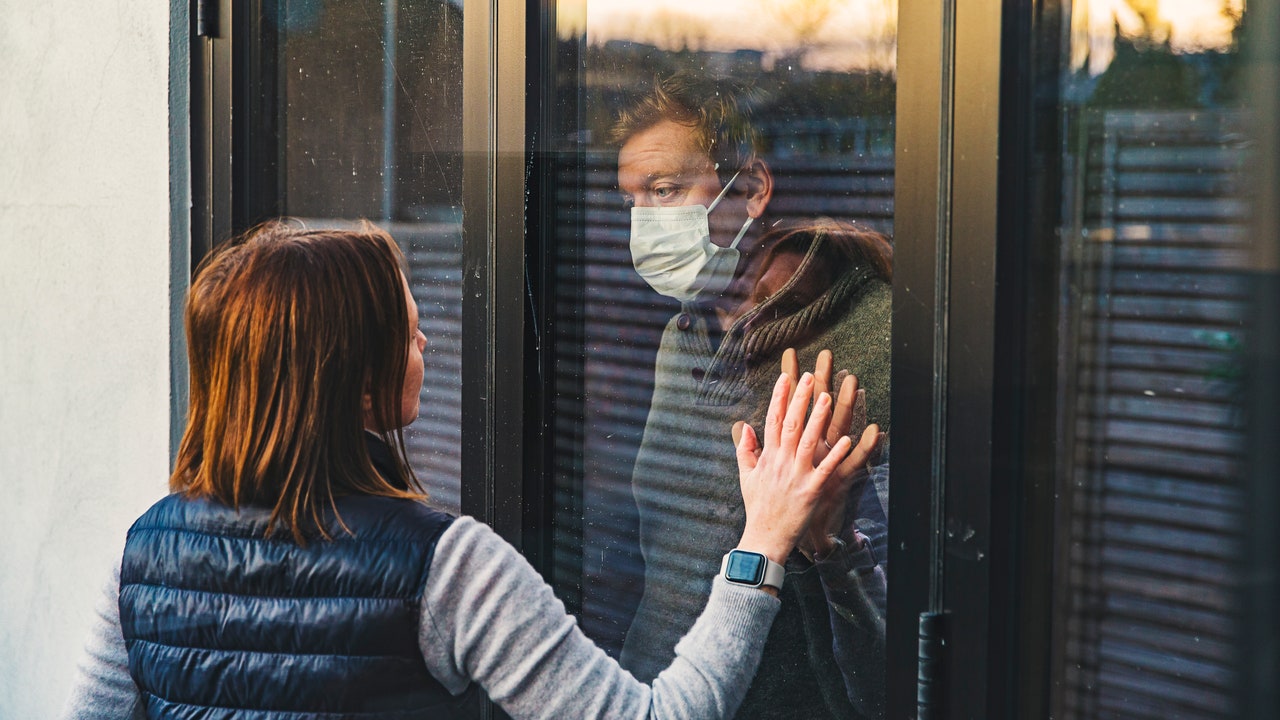What Happens When One Partner Is Vaccinated and the Other Isn’t?

[ad_1]
More and more people are receiving the COVID-19 vaccine these days, with 21.4% of the U.S. population covered since distribution began on December 14. Still, rollouts look different in various parts of the country, with comorbidities like asthma or a BMI in the obese range qualifying residents of states like New York and Texas for vaccines while others continue to wait—and in many cases, this has led to a situation in which one half of a couple is vaccinated while the other is not.
Being vaccinated when your partner isn’t presents a unique set of challenges; for example, it often means that the vaccinated person doesn’t get to enjoy the full range of activities the CDC has extended to them, as we still don’t know precisely how likely a vaccinated person is to spread COVID-19 to unvaccinated people. “I imagined the vaccine would be a lot more life-changing,” says Emily, 27, a writer in eastern Massachusetts who recently got her first dose, adding, “I would of course be elated if they discovered vaccinated people cannot be carriers, but until then, I don’t want to endanger my partner.”
For Spencer, 29, an attorney in Washington, D.C., the primary feeling surfacing now that his fiancée has received the vaccine is confusion. “I catch myself thinking about all the stuff we can do now, and reading those CDC guidelines about what’s okay, and then remembering that that’s potentially a ways off for me, and I then go back to being unsure of what we as a couple can do now,” he says.
For the moment, many people are learning to balance happiness about their partner’s vaccine eligibility with personal disappointment. “I teared up when my husband received his first dose, as we had waited almost three months for the call from his primary care physician to schedule the appointment [that never came],” says Donna, 56, a food bank employee in south-central Pennsylvania. “We were fortunate to schedule his vaccine appointment at a pharmacy in Scranton, a two-hour drive from our house, but truthfully, I would have driven anywhere to get him protected.” Donna still doesn’t qualify for her own vaccine despite her history of health issues, and while her joy at seeing her husband receive the vaccine is still there, she’s tired of waiting. “I suppose frustrated would be the best word,” she says.
For other couples, happiness shares space not just with frustration, but with the fear of being a burden. Kate, 27, a writer in New York City, saw her boyfriend get vaccinated this winter due to his job as a teacher and was thrilled: “People might imagine it would be frustrating to live with someone who now has access to this thing everyone wants, but I’ve only felt excited and relieved by proxy, because I now know he goes in to school every day and is way less likely to bring the virus home,” she says.
Still, there have been moments when Kate’s unvaccinated status has made the relationship feel less equal. “We went to a coffee shop recently to pick up breakfast, and it was almost totally empty, [so] we thought about maybe dining indoors,” says Kate. “If I was vaccinated like him, I would have been comfortable, but ultimately we took it out to the car. I felt a little guilty that I was this baggage that meant he couldn’t fully enjoy being vaccinated.”
Vaccine envy is becoming increasingly prevalent, and it’s especially intense when the object of your envy is lying next to you in bed, or dropping the kids off at school. “How are those of us still at risk supposed to grapple with that twinge of discontented longing that comes from contemplating the vaccinated state of our loved ones?” mused writer Constance Sommer in a recent Vogue article. That said, it’s important for people still awaiting their first dose to remember that their time will come soon; President Joe Biden has said publicly that the U.S. would have enough vaccine doses for all adults by the end of May.
After a long year of waiting for something—anything—to get better, it’s undoubtedly difficult to see the people closest to us move through the world with a new sense of freedom, no matter how happy we are for them. Perhaps the best thing that the unvaccinated halves of couples can do is muster up those last scraps of patience, which their vaccinated counterparts should meet with empathy; hopefully, this time next year we’ll look back on the time of half-vaccinated households as a phenomenon distinct to the winter and spring of 2021—before we all began to rebuild our lives again.
This article was originally published by Vogue.
[ad_2]
Source link




